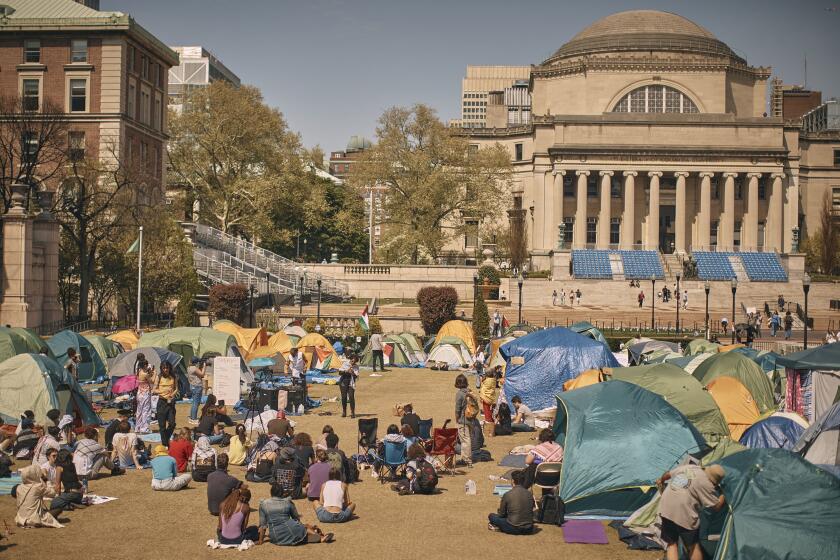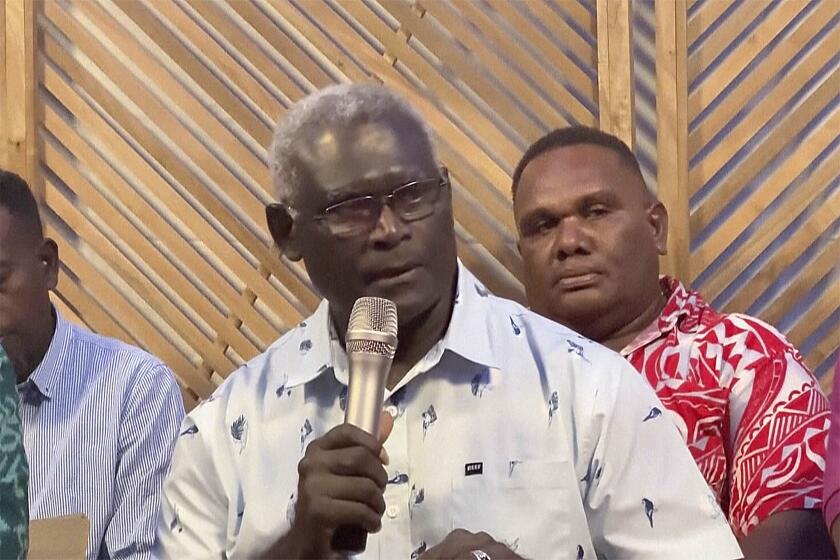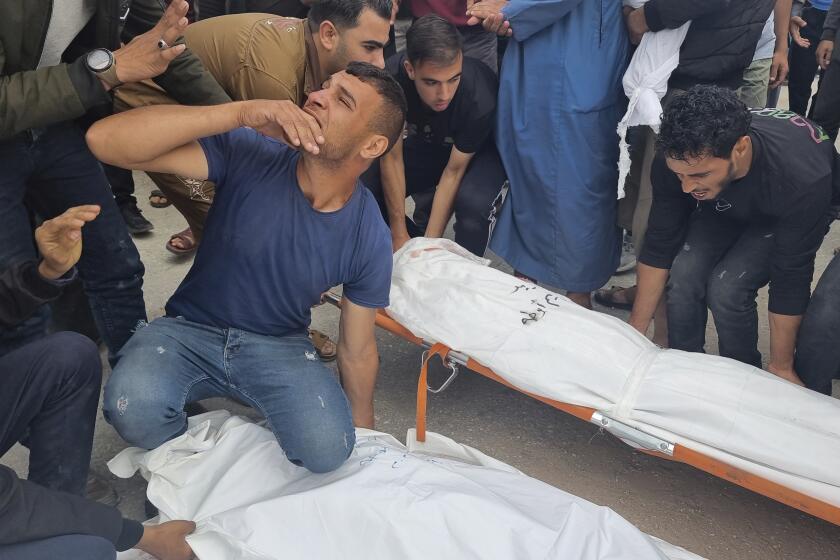Greasing the Skids for Oil-Rich Dictator : U.S. rightly considers an economic boycott to force change in Nigeria
The Clinton Administration is rightly considering economic sanctions to pressure Nigeria to retreat from repression and return to civilian rule. The military regime cannot afford to ignore this threat. The loss of huge oil revenues would cripple a country already severely damaged by greedy, dictatorial leaders who tolerate neither dissent nor democracy.
An American ban on oil imports would be economically devastating because the United States is Nigeria’s largest customer, and it would hurt politically because it would relegate Nigeria to the pariah status of Libya, Iran and Iraq. Limited U.S. sanctions currently ban travel to this country by most Nigerian officials and bar Nigerian aircraft. Most American foreign aid was cut off when the State Department declared Nigeria uncooperative in curbing the drug trade. Those punishments have resulted in no improvements.
The Administration sent Donald McHenry, a former U.S. ambassador to the United Nations, to hold private talks with Nigerian leaders. Still no progress was made. Randall Robinson of the TransAfrica advocacy organization called for sanctions six months ago. Robinson’s plea is significant because he orchestrated the campaign to impose economic sanctions on South Africa. He and a coalition of other black Americans now insist that Nigeria deserves the same isolation because military leaders have killed opponents, imprisoned dissenters, dissolved the legislature, plundered the national treasury, shut down labor unions, closed newspapers and pushed the country toward anarchy.
The United States is not alone in its criticism. Though African leaders rarely criticize each other, South Africa’s Deputy President Thabo Mbeki and Ghana’s President Jerry Rawlings recently asked the Nigerian government to grant clemency to 40 former government officials who were convicted last month by a secret military tribunal of plotting to overthrow the regime. Nigeria’s President Sani Abacha says he may grant clemency. But in the past his promises have proven worthless.
Moshood Abiola, the democratically elected president who was never allowed to head the government, remains imprisoned. Hundreds of pro-democracy activists also are in prison, according to the 1995 Amnesty International report. Public executions have become common; on Saturday, a Nigerian firing squad executed 43 convicted armed robbers.
Why should the world care? With a population put at 100 million, Nigeria is the most populous nation in Africa. With its oil riches, it is also one of the most powerful. Nigeria cannot be ignored, and President Sani Abacha cannot be allowed to destroy it.
More to Read
Start your day right
Sign up for Essential California for news, features and recommendations from the L.A. Times and beyond in your inbox six days a week.
You may occasionally receive promotional content from the Los Angeles Times.






